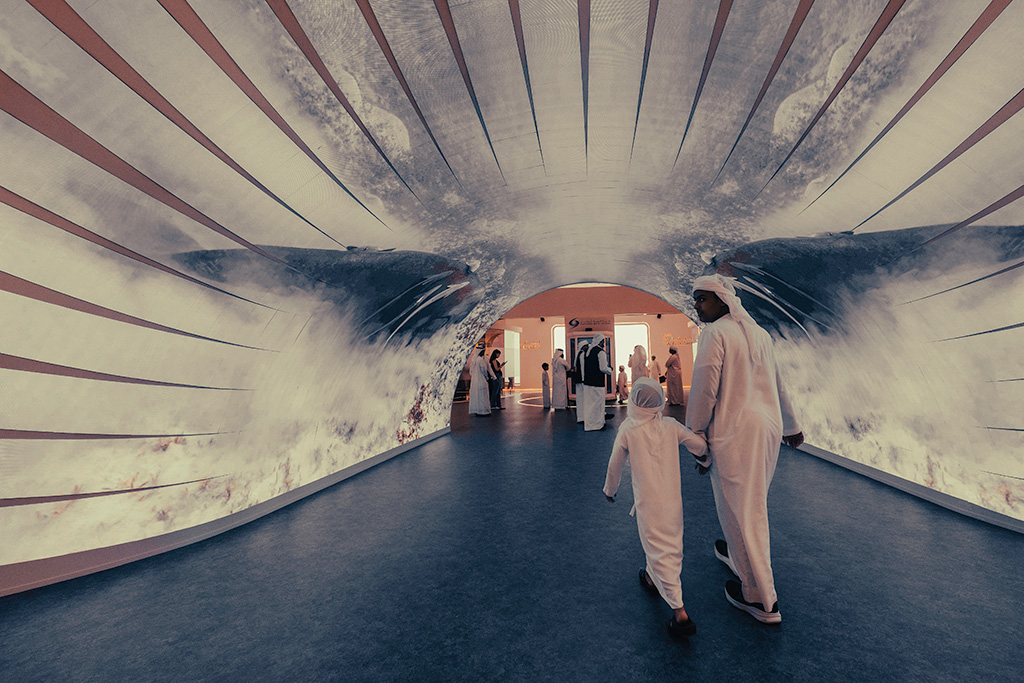Press Release Details
How Abu Dhabi is blending innovation and heritage to protect natural legacy

Publication Date: 6 Sep 2025
In the heart of the UAE’s golden desert, where tradition and nature have long intertwined, sustainability and conservation have become vital pillars for preserving the country’s rich cultural heritage. This commitment was prominently on display at the 2025 Abu Dhabi International Hunting and Equestrian Exhibition (ADIHEX), a grand event celebrating the legacy of the region’s iconic species while embracing modern innovations to ensure their future.
Falcons, revered throughout Emirati history as majestic symbols of courage and skill, hold a special place in this story. For millennia, falconry has been a cherished bond between human and nature, woven into the fabric of Bedouin life. Today, conservation efforts in Abu Dhabi have raised new hope for these magnificent birds.
One of the UAE’s signature conservation achievements is the Sheikh Zayed Falcon Release Programme, which began in Abu Dhabi in 1995. As of May 2025, this initiative has released a total of 2,355 falcons, including endangered Saker and agile Peregrine, back into the wild across Kazakhstan and surrounding regions. This year alone, 81 falcons were released (53 Peregrine and 28 Saker falcons), each fitted with electronic microchips for identification, plus solar-powered satellite trackers to monitor survival and migration. These careful preparations support healthy populations in their natural habitats and contribute valuable data for future conservation efforts.
The reach of the programme reflects Abu Dhabi’s commitment to species and habitat protection. The Abu Dhabi Falcon Hospital, one of the world's largest dedicated raptor hospitals, plays a central role in this effort. It handles comprehensive health checks and rehabilitation for the released birds, while regulating legal falconry and offering educational outreach. Each year, wild falcons are taken from Abu Dhabi to release locations chosen along traditional migratory routes, ensuring the survival of iconic species and the continuity of ecological balance.
Alongside these winged ambassadors, camels stand as enduring icons of Emirati culture and resilience. At ADIHEX 2025, the UAE Biotech Research Centre unveiled a remarkable chapter of conservation through the cloning of renowned racing and beauty camels. Jointly operated by Emirati and Korean scientists, this facility preserves elite bloodlines by cloning camels from preserved tissue samples. One iconic example is Mabrookan, a celebrated black camel who passed away in 2010. Thanks to advanced biotechnologies, Mabrookan’s genetic legacy was revived in 2021 with several clones, some now valued at over AED 60 million. Visitors at ADIHEX marveled at two of these cloned camels on display, underscoring a future where tradition meets cutting-edge science to protect species deeply embedded in the nation’s identity.
Dr. Ghbisha Alkitbe, a veterinarian and leading scientist at the Biotech Centre, explains that cloning is all about supporting biodiversity and genetic resilience. The collaboration with Korean experts brings world-class cloning techniques to the UAE, enabling the replication of camels prized not only for their racing speed but also for their exotic beauty, essential for breeding purposes and cultural preservation. The centre’s offering of cloning services to Bedouins and royal families alike reflects a shared commitment to sustainability, ensuring that these vital genetic lines continue thriving amid changing environmental conditions.
But Abu Dhabi's vision for sustainability does not stop at falcons and camels. The emirate is also a regional leader in the restoration and breeding of the Houbara bustard, a bird central to falconry and desert heritage. Through the International Fund for Houbara Conservation (IFHC), 888,000 houbara bustards have been bred, and more than 5354,000 birds have been released into the wild, as of 2024, stabilising wild populations in Abu Dhabi and across 18 countries. These efforts balance science and tradition, supporting genetic diversity and restoring ecological functions the Houbara provides.
Falconry itself is closely monitored, regulated by passport systems that document each bird’s identity and health, preventing illegal trade and supporting sustainable breeding programs. The Abu Dhabi Falcon Hospital plays a critical role in healing injured falcons and researching diseases, while public engagement and education ensure ecological awareness shapes responsible falconry practices.
ADIHEX embodies this blend of tradition and sustainability. Beyond displaying camels and falcons, the exhibition highlights the latest innovations such as falconry drones, high-tech devices simulating prey to train falcons more effectively while reducing stress on wild birds. These technological advances keep the centuries-old practice relevant and ethical, aligning with global sustainability goals.
Abu Dhabi’s approach demonstrates that progress and preservation can coexist. By honouring the desert’s natural heritage through science, stewardship, and cultural pride, the emirate is writing a blueprint for sustainable wildlife conservation in the modern age.
